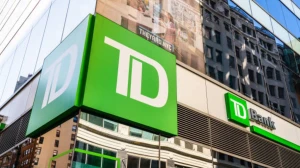
Money Market Accounts Vs CDs: Know the Difference
Money Market Accounts (MMAs) offer flexibility and easy access to funds, while Certificates of Deposit (CDs) provide higher interest rates but require a fixed commitment, so consider your financial goals and liquidity needs when deciding.
by Sai V
Published Sep 07, 2023 | Updated Sep 07, 2023 | 📖 15 min read
On This Page
- Money Market Accounts Vs. CDs
- What is the Difference Between Money Market Accounts and CDs?
- When Should You Consider Using a Money Market Account?
- When Might a CD Be a More Suitable Option?
- When Should You Choose a Money Market Account Instead of a CD?
- When Should I Prefer a CD Instead of a Money Market Account?
- How Do Money Market Accounts Operate?
- How Do Certificates of Deposit Operate?
- What does the term Money Market Account mean?
- What Does the Term Certificate of Deposit Mean?
- What Are the Interest Rates Applicable to CD Accounts?
- What Are the Interest Rates for Money Market Accounts?
- What Are the Advantages and Disadvantages of Certificate of Deposit?
- What Are the Advantages and Disadvantages of Money Market Accounts?
Money Market Accounts Vs. CDs
When deciding between Money Market Accounts (MMAs) and Certificates of Deposit (CDs), it's essential to consider your financial objectives and liquidity needs. MMAs offer greater flexibility with easy access to your funds, making them suitable for individuals who may require quick access to their savings while still earning competitive interest rates.
On the other hand, CDs provide higher interest rates but come with the trade-off of locking your money for a fixed term, making them a better choice for those willing to commit their savings for a specific period and seeking predictable returns. Your choice between MMAs and CDs ultimately hinges on your financial goals and the balance between accessibility and higher interest rates.
What is the Difference Between Money Market Accounts and CDs?
When considering where to invest your money to earn interest, it's essential to understand the distinctions between Money Market Accounts (MMAs) and Certificates of Deposit (CDs). Both MMAs and CDs offer secure ways to grow your savings, yet they function differently in terms of liquidity, interest rates, and minimum deposit requirements.
|
Aspect |
Money Market Account (MMA) |
Certificate of Deposit (CD) |
|
Liquidity |
Offers greater liquidity. |
Has a fixed term, limited liquidity. |
|
You can access funds at any time. |
Withdrawals usually incur penalties. |
|
|
Interest Rates |
Typically offers variable rates. |
Usually offers fixed interest rates. |
|
Rates are higher than regular savings. |
Higher interest rates compared to MMAs. |
|
|
Rates can change with market conditions. |
Rates remain fixed throughout the term. |
|
|
Minimum Deposits |
Some may have a minimum deposit requirement. |
Minimum deposits vary by institution. |
|
Many offer MMAs with no minimum deposit. |
Could range from $1 to larger amounts. |
When Should You Consider Using a Money Market Account?
If you're seeking a financial instrument that combines the advantages of higher interest earnings with the convenience of easy access to your funds, a money market account becomes a compelling option. Money market accounts offer the opportunity to earn a more attractive interest rate compared to traditional savings accounts while still permitting check writing and withdrawals.
This makes them particularly appealing for individuals who want to strike a balance between growing their savings and having the flexibility to use their money when necessary, all while minimizing exposure to market risks. So, when you prioritize liquidity and competitive returns, a money market account is worth considering as a financial tool that can meet your needs effectively.
When Might a CD Be a More Suitable Option?
A Certificate of Deposit (CD) could be a more suitable option for depositors in specific financial scenarios. If you have a substantial lump sum of money that you won't need access to for a predetermined period and you're comfortable with locking in your funds, a CD can offer the benefit of higher interest rates compared to regular savings accounts and money market accounts.
This makes it an attractive choice for individuals seeking maximum returns on their investment. However, it's essential to note that if you find the restrictions of both money market accounts and CDs less than ideal, you may want to consider high-yield savings accounts, which can provide competitive interest rates and greater flexibility, making them another viable option for your financial needs.
When Should You Choose a Money Market Account Instead of a CD?
Selecting a Money Market Account (MMA) over a Certificate of Deposit (CD) is advisable when you prioritize flexibility in managing your finances. MMAs allow you to make regular deposits and withdrawals without stringent penalties, while CDs lock your money for a fixed term. If you desire banking features like debit cards, ATM access, and check-writing capabilities usually found in checking accounts, some MMAs offer these perks.
Additionally, if you aim for a competitive interest rate while maintaining convenient access to your funds, MMAs with strong rates are worth considering. However, it's prudent to compare MMA rates with high-yield savings accounts to ensure your savings are optimally growing based on your financial objectives. Your choice between an MMA and a CD should align with your specific financial goals and liquidity requirements.
When Should I Prefer a CD Instead of a Money Market Account?
Choosing a Certificate of Deposit (CD) over a Money Market Account (MMA) is advantageous when you prioritize long-term savings and can commit to locking in your funds for a specified period. CDs typically offer higher interest rates for longer terms, making them suitable for individuals with a stable financial outlook who don't need frequent access to their savings. Unlike MMAs, CDs impose penalties for early withdrawals, which can act as an incentive to let your money grow untouched.
Additionally, if you are seeking a safe and guaranteed return on your investment and can afford to set aside a portion of your funds for an extended period, CDs are a reliable choice. They are particularly beneficial for achieving specific financial goals, such as saving for a major purchase or ensuring steady income during retirement. However, it's essential to carefully assess your financial objectives and liquidity needs before opting for a CD, as their inflexibility in accessing funds may not suit everyone's financial situation.
How Do Money Market Accounts Operate?
Money Market Accounts (MMAs) are a financial product that serves as a type of mutual fund, designed to offer individuals a way to earn interest on their savings while preserving the principal amount. Here is a breakdown of how MMAs operate:
Investment Strategy:
MMAs primarily invest in very short-term, interest-bearing instruments such as government bonds, certificates of deposit (CDs), and other low-risk, highly liquid assets. The primary goal is to minimize the risk of losing the principal investment.
Interest Rates:
MMAs are known for providing interest rates that are generally higher than those offered by regular savings accounts. However, it's important to note that the interest rates on MMAs are variable, meaning they can fluctuate based on prevailing market conditions.
Minimum Deposit and Balance:
To open an MMA, individuals often need to meet a higher minimum deposit requirement compared to standard savings accounts. Additionally, some MMAs may require a minimum balance to qualify for the highest interest rate, encouraging account holders to maintain a certain level of funds in the account.
Limited Transactions:
Federal regulations impose restrictions on the number of transactions that can be conducted from an MMA within a given month. Typically, account holders are limited to a maximum of six transactions, which can include withdrawals, transfers, and checks written against the account. This limitation is in place to maintain the account's status as a savings product rather than a transactional account.
Insurance:
MMAs offered by banks are generally insured by the Federal Deposit Insurance Corp. (FDIC). This insurance provides protection for the funds deposited in the MMA, up to a specified limit, usually $250,000 per account holder per bank. This insurance element helps mitigate the risk associated with MMAs, assuring account holders that their funds are safeguarded.
Money Market Funds vs. MMAs:
It's important to distinguish between MMAs and Money Market Funds. Money Market Funds are similar in that they invest in short-term, interest-bearing securities. However, they are not insured by the FDIC. Instead, they are regulated by the U.S. Securities and Exchange Commission (SEC). Since 2016, these funds are required to invest primarily in U.S. Treasury or government bonds to enhance their liquidity and quality. Money Market Funds are often offered by brokers and are sometimes included as an investment option in 401(k) plans.
How Do Certificates of Deposit Operate?
Certificates of Deposit (CDs) are timed deposits with fixed interest rates tied to maturity dates, offering varying options, including traditional CDs with withdrawal penalties, no-penalty CDs with lower interest rates for early access, and interest-only CDs allowing partial withdrawals without penalties.
Definition and Nature of CDs:
- CDs are essentially timed deposits with a fixed interest rate tied to a maturity date.
- They are offered by banks and financial institutions as a low-risk investment option.
Maturity Period:
- CDs come with a range of maturity periods, which can vary from as short as one month to as long as 10 years.
- The duration you choose affects the interest rate you'll earn, with longer terms typically offering higher rates.
Penalties for Early Withdrawal:
- Traditional CDs impose penalties if you withdraw your funds before the maturity date.
- These penalties are meant to discourage early withdrawals and can vary based on the specific CD terms and the bank offering it.
No-Penalty CDs:
- Some banks have introduced no-penalty CDs as an alternative.
- No-penalty CDs allow you to withdraw your money before maturity without incurring penalties.
- However, in exchange for this flexibility, you'll typically receive a lower interest rate compared to traditional CDs.
Interest-Only CDs:
- There are also interest-only CDs that permit you to withdraw only the interest earned on the principal.
- The initial deposit remains intact until the CD reaches maturity.
What does the term Money Market Account mean?
A Money Market Account (MMA) is a financial product provided by banks and credit unions that combines elements of both checking and savings accounts. These accounts offer depositors a way to earn interest on their funds, akin to a savings account, while also providing the convenience of access to the money through features such as debit cards, ATM cards, and check-writing capabilities, similar to a checking account.
However, MMAs typically impose a monthly limit of around six withdrawals or transactions, and exceeding this limit may result in excess withdrawal fees. It's important not to confuse Money Market Accounts with Money Market Funds, which are investment products offered by brokerages and differ in their underlying nature and investment objectives.
What Does the Term Certificate of Deposit Mean?
A Certificate of Deposit, often abbreviated as CD, refers to a financial instrument offered by banks and credit unions where individuals deposit a specific amount of money for a fixed period, known as the CD's term. During this time, the deposited funds accumulate interest at a predetermined fixed rate. Upon maturity, the account holder can choose to withdraw both the initial deposit and the accrued interest or opt to renew the CD, providing a safe and low-risk savings option for those seeking a predictable return on their investment.
However, early withdrawals may result in penalties, making it essential for investors to carefully consider their financial goals and the terms of the CD they select.CDs offer a stable way to grow savings over time, making them suitable for individuals looking for a reliable, interest-earning vehicle with minimal risk.
To enhance flexibility while maximizing returns, some investors opt for CD laddering strategies, diversifying their investments across multiple CDs with varying maturity dates and interest rates. In essence, a Certificate of Deposit represents a disciplined approach to savings and investment, balancing security and potential gains for savers and investors alike.
What Are the Interest Rates Applicable to CD Accounts?
CD accounts offer varying interest rates depending on the term you choose. Typically, longer-term CDs come with higher interest rates compared to shorter-term ones. The national average rates for CD accounts can range from 0.03% for a one-month CD to 0.29% for a 60-month CD.
However, some banks may offer special promotional CDs with shorter terms but higher interest rates. It's also important to note that CD interest rates are usually fixed for the entire term, but some banks provide options like step-up and bump-up CDs, allowing rate adjustments under specific conditions. These accounts offer a way to potentially earn more interest by committing your funds for a set period.
What Are the Interest Rates for Money Market Accounts?
Money market accounts, a hybrid of savings and checking accounts, offer a way to earn interest on your savings while maintaining some liquidity. The national average interest rate for money market accounts was 0.08%, though it's worth noting that rates can vary among financial institutions. Online banks and certain credit unions often provide more competitive rates than traditional brick-and-mortar banks.
However, these accounts typically come with higher minimum deposit requirements compared to regular savings accounts, sometimes ranging from $1,000 to $10,000 or more. When considering a money market account, individuals should weigh the interest rates against their specific financial needs and the required initial deposit, taking into account the account's withdrawal limitations.
What Are the Advantages and Disadvantages of Certificate of Deposit?
Certificates of Deposit (CDs) are a popular financial instrument used by individuals to save and grow their money. They offer a range of benefits, but like any investment, they come with their own set of drawbacks.
Advantages of Certificates of Deposit (CDs):
- One of the primary advantages of CDs is their safety and security. CDs are typically offered by banks and credit unions, and many of them are insured by the Federal Deposit Insurance Corporation (FDIC) for banks or the National Credit Union Administration (NCUA) for credit unions. This means that up to a certain limit, your principal amount is protected, providing peace of mind for savers.
- CDs often offer higher interest rates and Annual Percentage Yields (APYs) compared to regular savings accounts or money market accounts. This can result in more significant interest earnings over time, especially with longer-term CDs.
- When you invest in a CD, you know exactly how much interest you will earn over the CD's term. This predictability can be a valuable asset for financial planning, allowing you to set and achieve specific financial goals.
- Savvy investors use CD laddering strategies to take advantage of changing interest rates. By spreading their investments across multiple CDs with different maturity dates, they can maintain liquidity while optimizing their returns.
Disadvantages of Certificates of Deposit (CDs):
- The biggest drawback of CDs is the penalties imposed for early withdrawals. If you need to access your funds before the CD's maturity date, banks and credit unions may charge penalties, which can significantly reduce your earnings or even dip into your principal amount.
- CD interest rates may not keep pace with inflation. In periods of rising consumer prices, the real purchasing power of your money may decrease. This means that while your savings are safe, they may not necessarily grow at a rate that outpaces the cost of living.
- If you're seeking substantial growth in your investments, CDs may not be the ideal choice. While they offer safety, they generally provide lower returns compared to riskier investment options like stocks or bonds.
- CDs offer less liquidity compared to traditional savings accounts, money market accounts, or checking accounts. Withdrawing funds from a CD before its maturity date can result in penalties, and you may not have immediate access to your money when you need it.
What Are the Advantages and Disadvantages of Money Market Accounts?
Money market accounts (MMAs) offer a range of advantages and disadvantages for savers and investors. These accounts are a popular choice for individuals seeking a balance between liquidity and higher interest rates. Below, we'll explore the advantages and disadvantages of money market accounts in a concise and informative format:
Advantages of Money Market Accounts:
- MMAs provide a high level of flexibility for managing your finances. You can easily deposit or transfer funds, making it convenient for individuals with multiple accounts at the same bank. Additionally, having a linked debit card and the ability to write checks allows for easy bill payments, covering unexpected expenses, and saving for various financial goals.
- One of the key advantages of MMAs is their potential to offer competitive interest rates. A higher Annual Percentage Yield (APY) can help your savings grow more effectively over time, making MMAs an attractive option for those seeking both liquidity and returns on their investments.
- Money market accounts held at FDIC-insured banks or credit unions provide a level of safety and security. The FDIC insurance ensures that your deposits are protected up to a certain limit, minimizing risk and providing peace of mind.
- Unlike certificates of deposit (CDs), which lock your funds for a predetermined period, MMAs allow you to access your money at any time. This accessibility is crucial for handling unexpected financial needs or emergencies through electronic transfers, checks, or ATM withdrawals.
Disadvantages of Money Market Accounts:
- MMAs often come with varying minimum balance requirements to open an account. Some banks may have low thresholds, while others may require substantial initial deposits, such as $5,000 or $10,000. For individuals who are just starting to save, these requirements can limit their options.
- While some MMAs offer attractive interest rates, others may provide rates similar to standard savings accounts. To access the higher rates, you might need to maintain a specific minimum balance, potentially excluding savers with smaller sums from maximizing their earnings.
- Monthly maintenance fees are a common drawback associated with MMAs. While some banks offer fee waivers based on daily balance or direct deposit criteria, not all banks provide such exemptions. High fees can erode the interest earnings on your savings.
- MMAs may have withdrawal restrictions, with individual banks imposing their own limits. Although federal Regulation D limits were suspended during the COVID-19 pandemic, some banks continue to restrict the number of withdrawals, charging fees for exceeding these limits.
Money Market Accounts Vs. CDs - FAQs
1. What is a Money Market Account (MMA)?
An MMA is a bank or credit union account that combines features of checking and savings, offering interest while allowing withdrawals.
2. What is a Certificate of Deposit (CD)?
A CD is a time deposit with a fixed interest rate for a specific term, usually with penalties for early withdrawals.
3. How do MMAs differ from CDs?
MMAs provide liquidity with variable rates, while CDs offer higher fixed rates but lock funds for a set term.
4. Are MMAs and CDs insured?
Yes, if held at FDIC-insured banks or NCUA-insured credit unions, both are insured up to certain limits.
5. What's the advantage of MMAs over CDs?
MMAs offer liquidity and flexibility, allowing easy access to funds.




